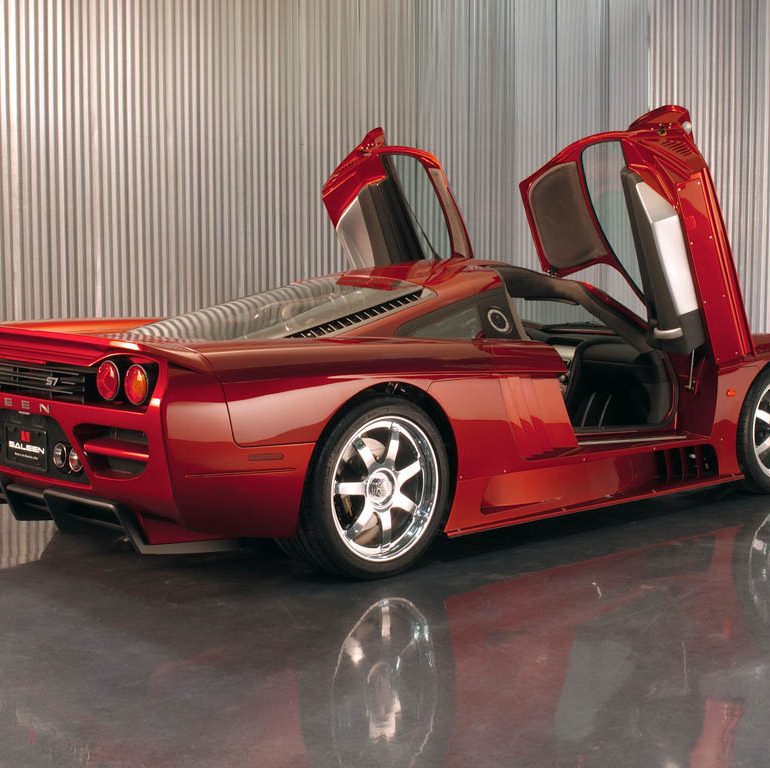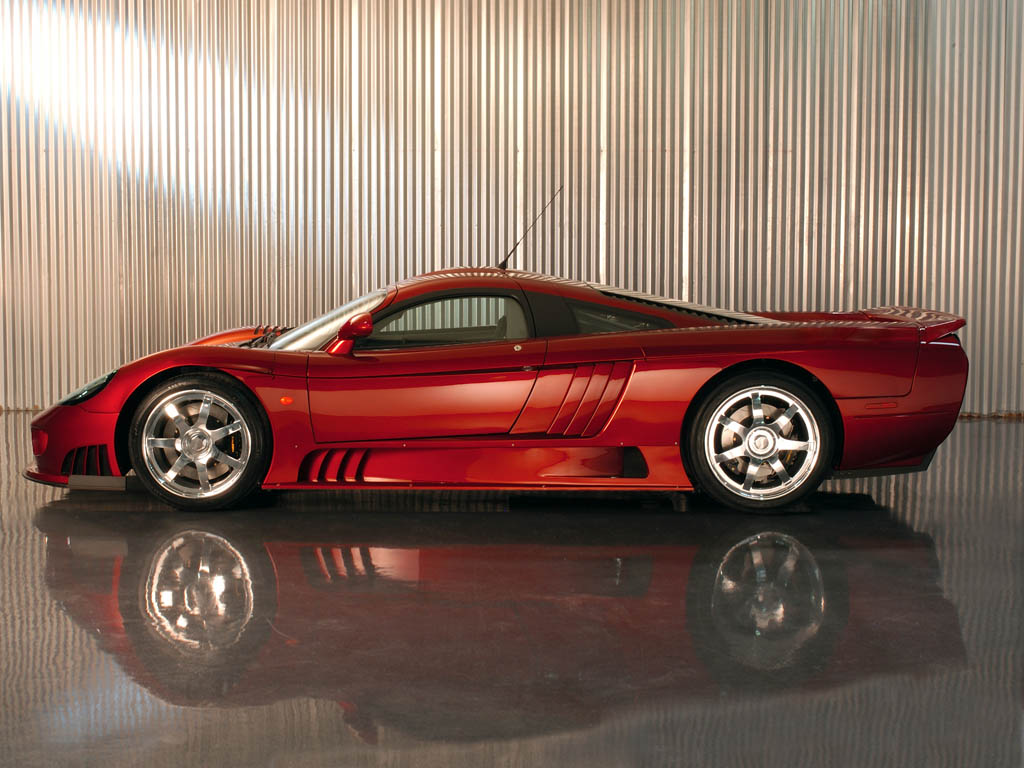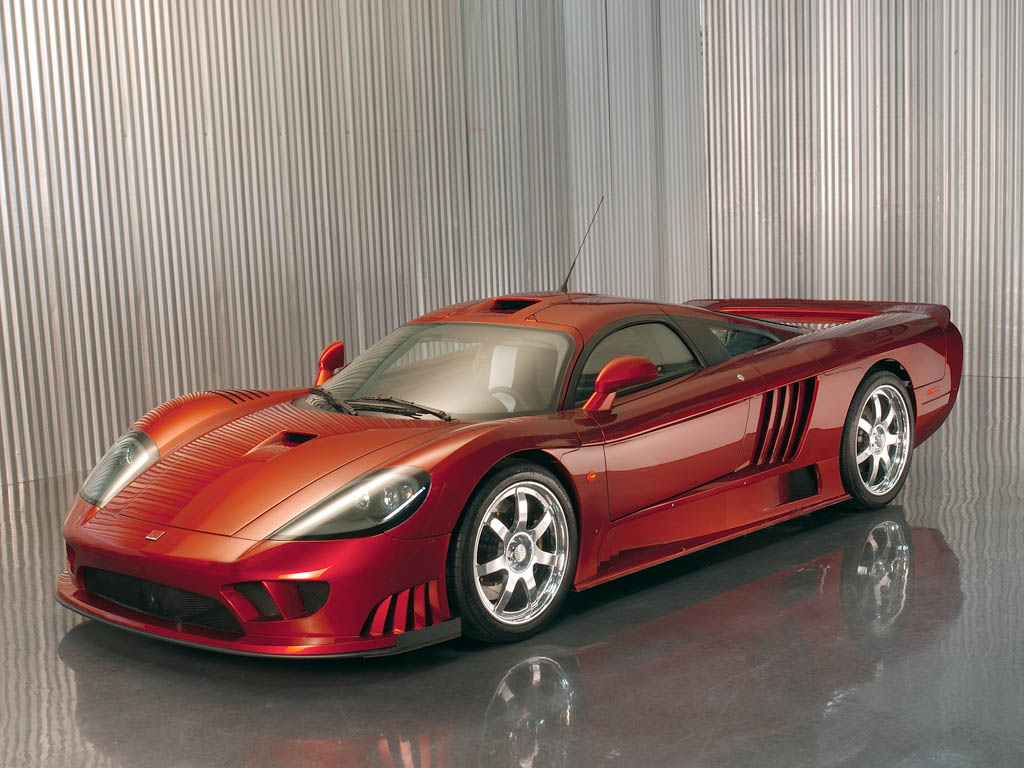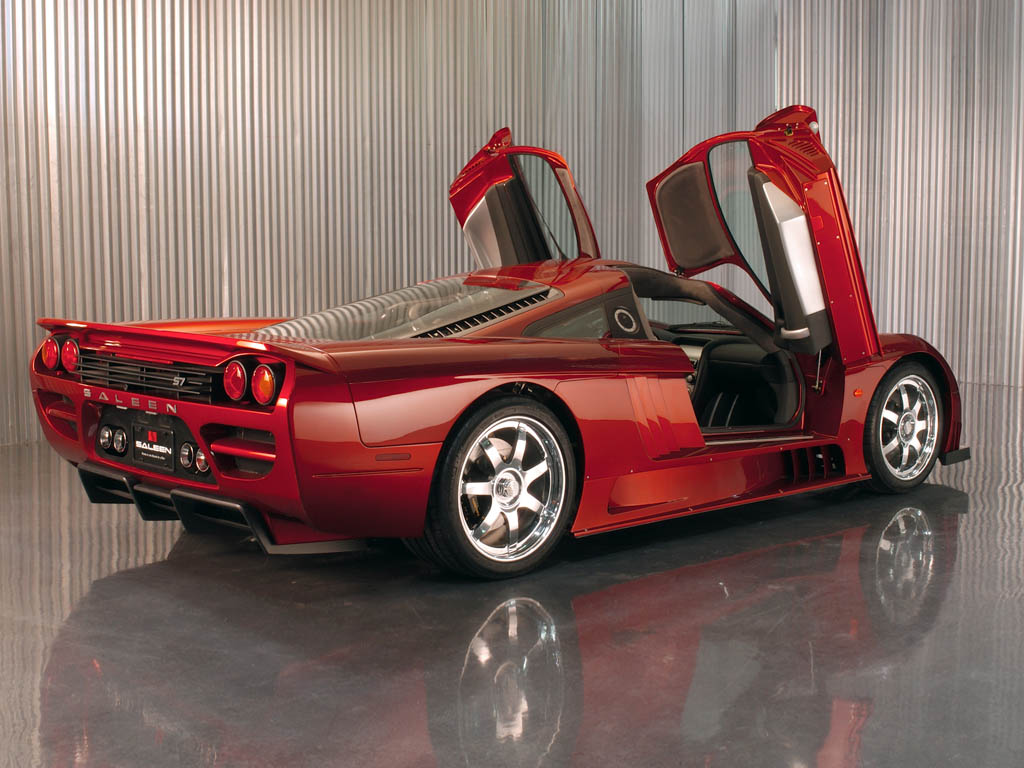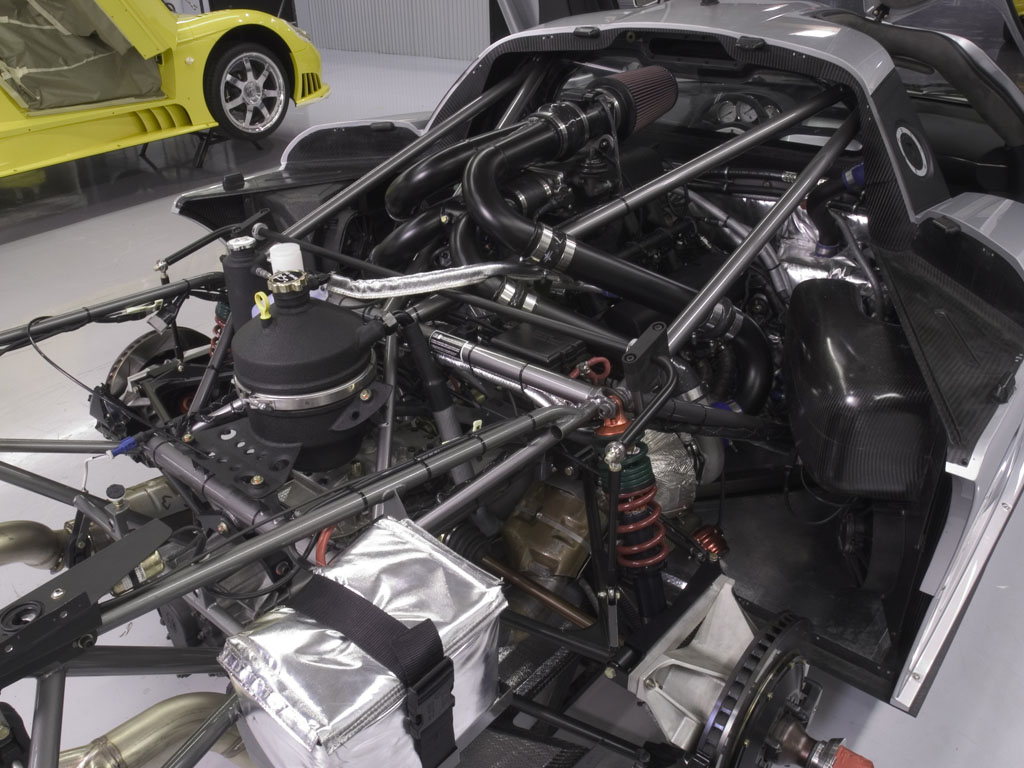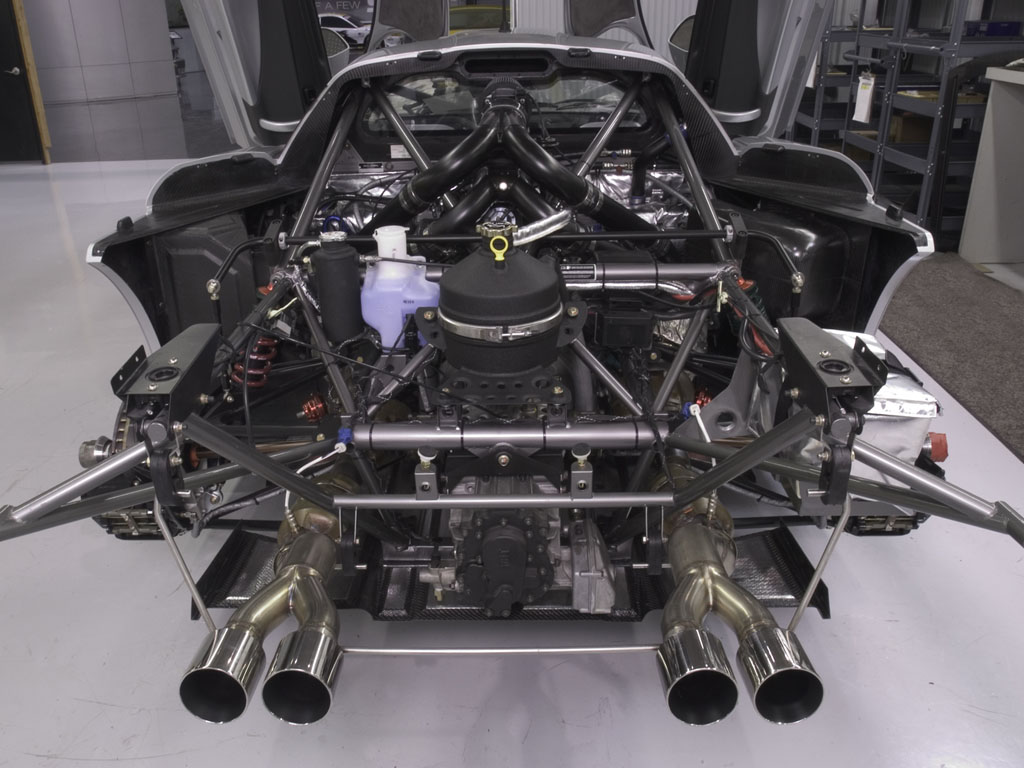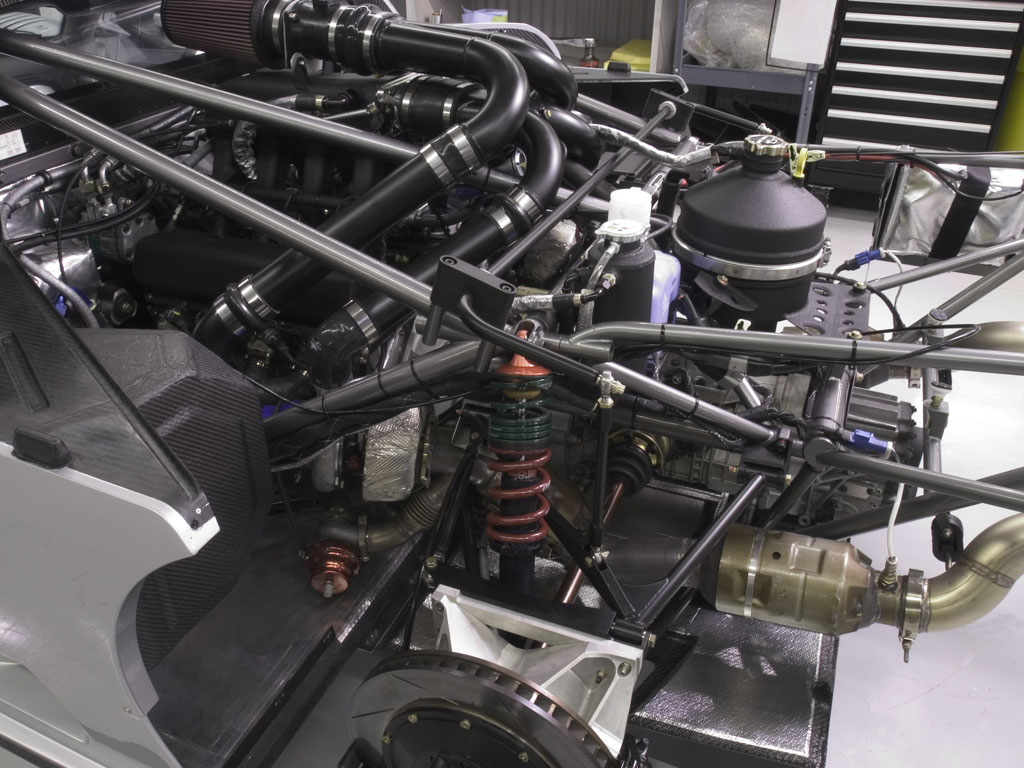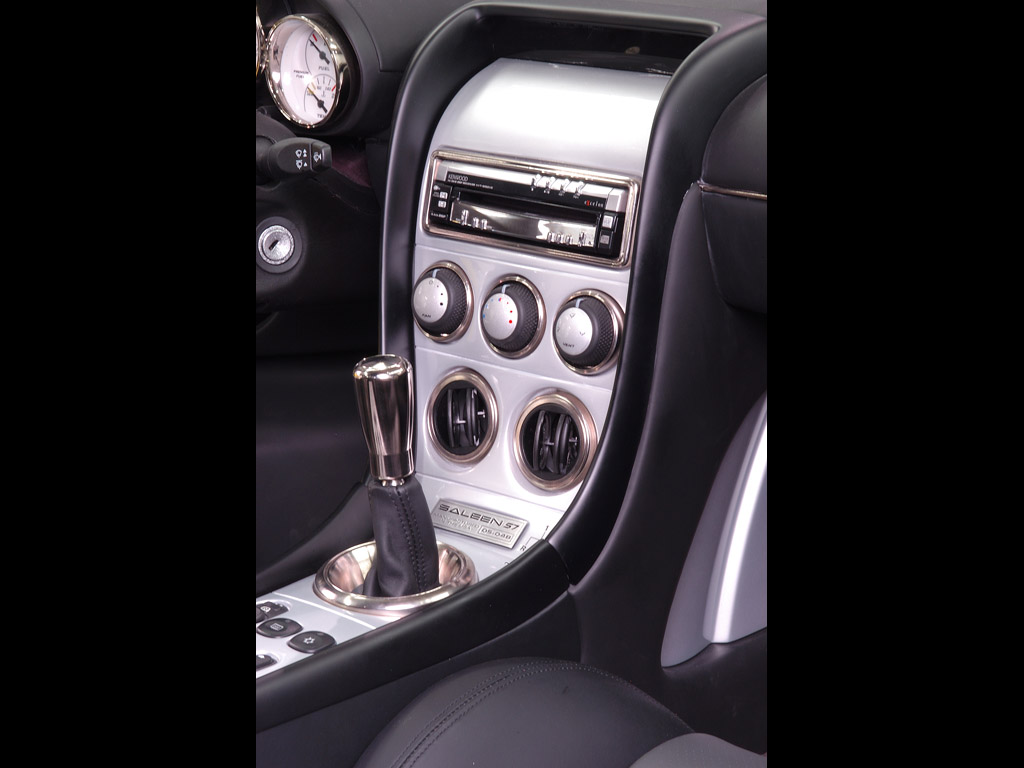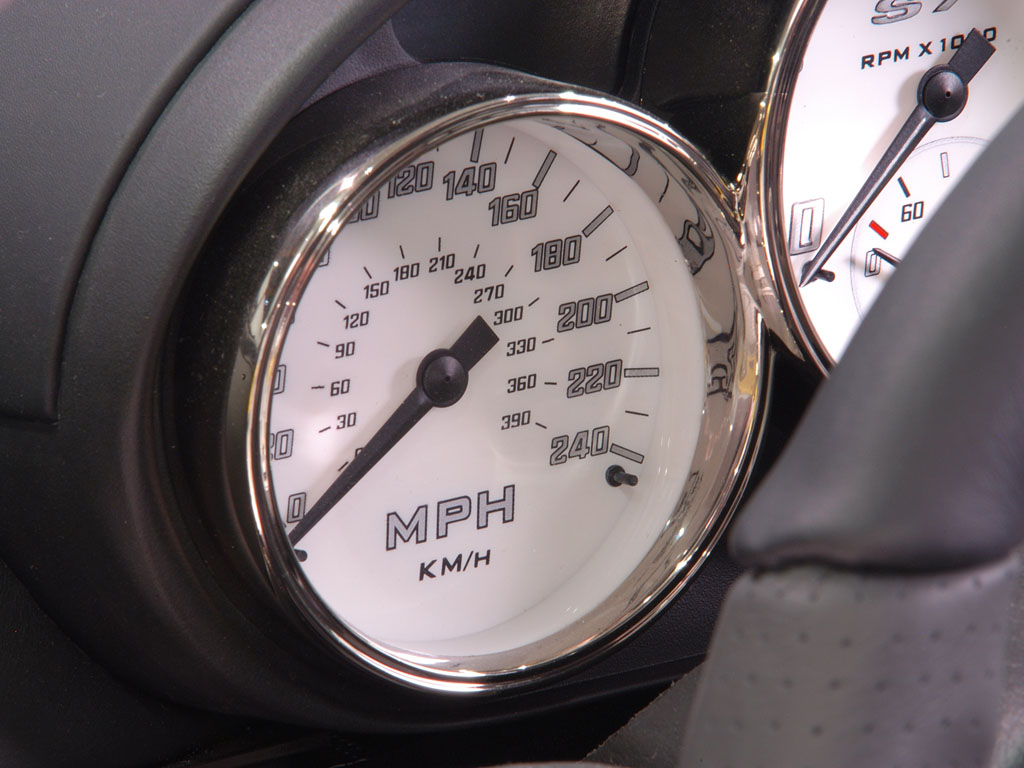2005 Saleen S7 Twin Turbo
When it went on sale in 2002, the S7 was the only street-legal car in the U.S. with more than 500 horsepower and 500 lb-ft of torque. The media and S7 owners have raved about the car and it has been recognized by numerous automotive magazines as the fastest American car in the world.
But during the past three years the automobile marketplace has witnessed an explosion of performance with models from manufacturers including Ferrari, Lamborghini, Mercedes-Benz, Porsche and Chevrolet touting power numbers above the once magic 500 level. Saleen is not an organization content to rest on yesterday’s 0-60 mph times or quarter-mile speeds. So for 2005 it’s ”all hail the S7 Twin Turbo!”
This is the first major change to the S7 since its introduction, and it is a BIG change as in 750 horsepower and 700 lb-ft of torque, numbers the competition will be chasing for a long while we predict.
See the full 2005 Saleen S7 Twin Turbo Gallery
What’s New for 2005
It was pretty obvious to Saleen product planners during the late 1990s that horsepower and torque numbers were trending upwards, especially among the purveyors of supercars. And power figures that looked spectacular at that time might seem quite ordinary a few years down the road. So Saleen engineers have been planning for this day since they drew the first line on a computer screen for the original S7’s 7-liter engine.
Aerodynamics has also come under scrutiny for 2005. Unless you place the new S7 Twin Turbo next to one of the original 2002 models, you probably won’t notice that the 2005 version has a different diffuser/rear spoiler package and reshaped front fenders to enhance the S7s already sleek, swoopy and aerodynamic contours. For the 2005 S7 Twin Turbo, the redesigned front and rear diffusers, along with the new rear spoiler, result in a 40 percent reduction in aero drag and a 60 percent increase in down force.
To complement the Twin Turbo’s enhanced straight-line performance envelope The S7 chassis has also undergone a fair amount of tweaking. Virtually every suspension pickup point has been changed, and the suspension geometry has been modified for less squat and dive during acceleration and braking.
To further improve driving comfort and ergonomics, the S7 Twin Turbo incorporates a revised pedal box. The clutch and throttle lever ratios pedals have been changed for lighter pedal efforts. In addition, the three pedals have been spaced farther apart without impinging upon the dead pedal.
Engine & Drivetrain
The new all-aluminum V8 engine casting was engineered and tooled by Saleen to displace seven liters. Space age materials and engineering are used throughout, including stainless steel valves, titanium retainers, beryllium exhaust valve seats, an aluminum throttle body, Saleen-designed aluminum CNC-machined cylinder heads and stainless steel exhaust system. The V8 incorporates a unique Saleen-designed side-mounted water pump, a belt-driven camshaft drive and a Saleen-engineered dry sump oil delivery system.
The engine’s mid-chassis placement optimizes weight distribution and makes room for an unusually tall engine that allows for a very efficient induction system. Air enters a roof intake, passes through a 90-mm mass air meter and feeds into a carbon fiber plenum. From the plenum the air is routed to the twin ball bearing turbos, is pressurized to 5.5 psi max and then passes through an oval-bore throttle body into an aluminum intake manifold with eight individual runners.
To feed juice to this setup, the injection system includes dual electric fuel pumps and high-capacity, return-less, 52 lb/hr fuel injectors. Neatly engineered and integrated into the S7’s stainless steel, dual, high-flow exhaust system are two, twin-ball-bearing, water-cooled Saleen-Garrett turbos, featuring 44-mm wastegates. The four exhaust pipes from each bank of cylinders merge into a race-car-like high-efficiency collector. In addition, the exhaust incorporates dual catalysts per cylinder bank, EGR and those aforementioned twin wastegates.
See the full 2005 Saleen S7 Twin Turbo Gallery
And because Saleen believes in power and clean air, the emission control system features dual, heated oxygen sensors per cylinder bank and a high-volume evaporative emission system along with those four catalysts. Oh, and for good measure and clean air, the system is OBD-II compliant.
One of the few internal changes to the twin-turbo engine is a swap from hydraulic to solid lifters. This change allows the engine to rev higher and harder. Also, as is typical with turbocharged engines, the compression ratio has been lowered. It drops from a very high 12.0:1 in the previous naturally aspirated V8 to a still high 11.0:1. And for increased durability, Saleen engineers also added oil squirters to cool the undersides of the pistons.
A new-generation six-speed transaxle, with a unique Saleen bell housing, transfers power to the wheels. The clutch is an organic/metallic 8.0-inch, twin-plate unit with hydraulic actuation.
Chassis, Suspension & Brakes
A major improvement in ride is achieved for 2005 with the use of coil springs that are a dual-stage design. The first spring has a lower rate than the single springs fitted to the current S7, resulting in softer ride during normal street driving. But if you remember your history, you know that the S7 is a flat-bottom, downforce car. The faster you go, the more downforce the S7 develops. In the case of the S7âs new dual-stage springs, the second stiffer spring starts coming into play at around 100 mph when the car begins to develop serious downforce.
Chassis tuning also includes revised shock valving front and rear. Saleen-engineered Brembo-supplied lightweight aluminum six-piston mono-block calipers are fitted front and rear. The brakes are among the largest of any production car with 15-inch vented discs up front and 14-inch vented discs at the rear.
Geometry changes, along with new tires, result in about a 30 percent increase in mechanical grip . . . which is substantial. In a seeming contradiction to current performance tire practice, the 2005 S7 Twin Turbo is fitted with taller tires, 275/35R19s up front and 335/30R20s at the rear. While the Michelin Pilot Sport PS2 tires have higher aspect ratios, they also lay tire patches that are 1.5 inches wider at the rear.
Conclusion
None of the S7’s major supercar competitors, such as the Ferrari Enzo, the McLaren F1 and the Maserati MC12, are a match for the S7 Twin Turbo’s prodigious horsepower and torque figures: All are at least 100 bhp and more than 200 lb-ft in arrears of the S7. Chalk up another victory for good old American V8 engine ingenuity.
It’s also no contest when it comes to price. The Manufacturer’s Suggested Retail Price (MSRP) for the 2005 S7 Twin Turbo is $555,000. That’s $100,000 less than an Enzo (which is out of production and escalating in price) and nearly $300,000 fewer dollars than the Maserati. And you could have Her and His S7s for the price of the McLaren F1!
2005 Saleen S7 Twin Turbo Gallery
See the full 2005 Saleen S7 Twin Turbo Gallery
In Detail
| price $ | $555 000 USD |
| engine | Twin Turbo All Aluminum V8 w/Dry Sump Lubrication |
| aspiration | Twin Garrett GT35R Turbos |
| valvetrain | Pushrod Driven, 2 Valves per Cyl |
| fuel feed | Fuel Injection |
| displacement | 6991 cc / 426.6 in³ |
| bore | 104.6 mm / 4.12 in |
| stroke | 101.6 mm / 4.0 in |
| compression | 10.8:1 |
| power | 559.3 kw / 750 bhp @ 6300 rpm |
| specific output | 107.28 bhp per litre |
| bhp/weight | 560.54 bhp per tonne |
| torque | 949.07 nm / 700 ft lbs @ 4800 rpm |
| redline | 6500 |
| body / frame | Carbon Riber-Reinforced w/Plastic and Aluminum Honeycomb over Steel Space Frame |
| driven wheels | RWD w/Limited Slip Differential |
| wheel type | Forged Aluminum |
| front tires | 275/35ZR-19 100Y |
| rear tires | 335/30ZR-20 104Y Michelin Pilot Sport PS2 |
| front brakes | Brembro Ventilated Discs w/6-Piston Monobloc Calipers |
| f brake size | x 381 mm / x 15 in |
| rear brakes | Brembro Ventilated Discs w/6-Piston Monobloc Calipers |
| r brake size | x 356 mm / x 14 in |
| front wheels | F 48.3 x 24.1 cm / 19 x 9.5 in |
| rear wheels | R 50.8 x 30.5 cm / 20 x 12 in |
| steering | Rack & Pinion w/Power Assist Michelin Pilot Sport PS2 |
| f suspension | Unequal Double Wishbones w/Coil-OverAluminum Dampers, Anti-Roll Bar |
| r suspension | Unequal Double Wishbones w/Coil-OverAluminum Dampers, Anti-Roll Bar |
| curb weight | 1338 kg / 2950 lbs |
| wheelbase | 2700 mm / 106.3 in |
| front track | 1748 mm / 68.8 in |
| rear track | 1710 mm / 67.3 in |
| length | 4774 mm / 188.0 in |
| width | 1990 mm / 78.3 in |
| height | 1041 mm / 41.0 in |
| transmission | 6-Speed Transaxle |
| gear ratios | 2.86:1, 1.61:1, 1.14:1, 0.96:1, 0.81:1, 0.64:1, :1 |
| final drive | 3.70:1 |
| top speed | ~399.1 kph / 248 mph |
| 0 – 60 mph | ~3.2 seconds |
| 0 – 100 mph | ~6.2 seconds |
| 0 – 1/4 mile | ~10.6 seconds |


